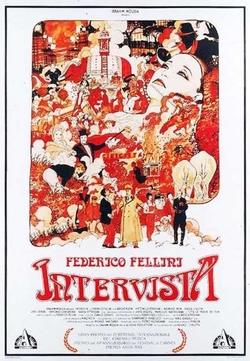Related Research Articles

Voice-over is a production technique where a voice—that is not part of the narrative (non-diegetic)—is used in a radio, television production, filmmaking, theatre, or other presentations. The voice-over is read from a script and may be spoken by someone who appears elsewhere in the production or by a specialist voice actor. Synchronous dialogue, where the voice-over is narrating the action that is taking place at the same time, remains the most common technique in voice-overs. Asynchronous, however, is also used in cinema. It is usually prerecorded and placed over the top of a film or video and commonly used in documentaries or news reports to explain information.
Cinéma vérité is a style of documentary filmmaking developed by Edgar Morin and Jean Rouch, inspired by Dziga Vertov's theory about Kino-Pravda. It combines improvisation with use of the camera to unveil truth or highlight subjects hidden behind reality. It is sometimes called observational cinema, if understood as pure direct cinema: mainly without a narrator's voice-over. There are subtle, yet important, differences between terms expressing similar concepts. Direct cinema is largely concerned with the recording of events in which the subject and audience become unaware of the camera's presence: operating within what Bill Nichols, an American historian and theoretician of documentary film, calls the "observational mode", a fly on the wall. Many therefore see a paradox in drawing attention away from the presence of the camera and simultaneously interfering in the reality it registers when attempting to discover a cinematic truth.

Sex, Lies, and Videotape is a 1989 American independent drama film written and directed by Steven Soderbergh. The plot tells the story of a troubled man who videotapes women discussing their sexuality and fantasies, and its impact on the relationships of a troubled married couple and the wife's younger sister.
"Below-the-line" is a term derived from the top sheet of a film budget for motion pictures, television programs, industrial films, independent films, student films and documentaries as well as commercials. The "line" in "below-the-line" refers to the separation of production costs between script and story writers, producers, directors, actors, and casting and the rest of the crew, or production team.
Filmmaking or film production is the process by which a motion picture is produced. Filmmaking involves a number of complex and discrete stages, beginning with an initial story, idea, or commission. Production then continues through screenwriting, casting, pre-production, shooting, sound recording, post-production, and screening the finished product before an audience, which may result in a film release and exhibition. The process is nonlinear, as the director typically shoots the script out of sequence, repeats shots as needed, and puts them together through editing later. Filmmaking occurs in a variety of economic, social, and political contexts around the world, and uses a variety of technologies and cinematic techniques to make theatrical films, episodic films for television and streaming platforms, music videos, and promotional and educational films.

In the performing arts industry such as theatre, film, or television, casting, or a casting call, is a pre-production process for selecting a certain type of actor, dancer, singer, or extra for a particular role or part in a script, screenplay, or teleplay. This process may be used for a motion picture, television program, documentary film, music video, play, or advertisement, intended for an audience.
A talent agent, or booking agent, is a person who finds work for actors, authors, broadcast journalists, film directors, musicians, models, professional athletes, screenwriters, writers, and other professionals in various entertainment or sports businesses. In addition, an agent defends, supports and promotes the interest of their clients. Talent agencies specialize, either by creating departments within the agency or developing entire agencies that primarily or wholly represent one specialty. For example, there are modeling agencies, commercial talent agencies, literary agencies, voice-over agencies, broadcast journalist agencies, sports agencies, music agencies and many more.
Television crew positions are derived from those of film crew, but with several differences.
The Casting Society, formerly known as Casting Society of America (CSA), was founded in Los Angeles, California, in 1982 as a professional society of about 1,200 casting directors and associate casting directors for film, television, theatre, and commercials in Canada, Europe, Australia, Asia and Africa, and the United States. The nonprofit organization announced the name change from Casting Society of America to Casting Society on February 10, 2022. The society is not to be confused with an industry union. The International Brotherhood of Teamsters represent most of the major casting directors and associate casting directors in Hollywood. Members use the post-nominal letters "CSA" when credited for their work.

Barry Shabaka Henley is an American character actor. Henley has appeared as a regular in a number of television series, has numerous film credits, and is a fixture in films by director Michael Mann, having worked with the director three times. Since 2019, he has co-starred in the CBS sitcom Bob Hearts Abishola.

Intervista is a 1987 Italian film directed by Federico Fellini.

Backstage, also previously written as Back Stage, is an American entertainment industry trade publication. Founded by Allen Zwerdling and Ira Eaker in 1960, it covers the film and performing arts industry from the perspective of performers, unions, and casting, with an emphasis on topics such as job opportunities and career advice. The brand encompasses the main Backstage magazine, and related publications such as its website, Call Sheet —a bi-monthly directory of talent agents, casting directors, and casting calls, and other casting resources.
Jeopardy! is an American television quiz show created by Merv Griffin, in which contestants are presented with clues in the form of answers, and must phrase their responses in the form of a question. Throughout its run, the show has regularly offered auditions for potential contestants, taking place in the Los Angeles area and occasionally in other locations throughout the United States. Unlike those of many other game shows, Jeopardy!'s audition process involves passing a test of knowledge on a diversity of subjects, approximating the breadth of material encountered by contestants on the show. Since 2006, an online screener test is conducted annually.

Show Business is a performing arts magazine. Its mission is to help guide aspiring actors toward a successful career in the performing arts. Show Business content includes casting calls and audition notices as well as theater-related news and information. In addition, the print publication and website publishes contact information for talent agents, managers, and casting directors.

An audition is a sample performance by an actor, singer, musician, dancer or other performer. It typically involves the performer displaying their talent through a previously memorized and rehearsed solo piece or by performing a work or piece given to the performer at the audition or shortly before. In some cases, such as with a model or acrobat, the individual may be asked to demonstrate a range of professional skills. Actors may be asked to present a monologue. Singers will perform a song in a popular music context or an aria in a Classical context. A dancer will present a routine in a specific style, such as ballet, tap dance or hip-hop, or show his or her ability to quickly learn a choreographed dance piece.
Articles related to the field of motion pictures include:

Melinda Leanna Shankar is a Canadian actress. She is best known for starring as Alli Bhandari in the television series Degrassi: The Next Generation (2008-2015) and as Indira "Indie" Mehta in the YTV series How To Be Indie (2009-2011), for which she won several awards, including a Canadian Screen Award in 2013.

Carolyne H. Barry was an American dancer and dance instructor.
This glossary of motion picture terms is a list of definitions of terms and concepts related to motion pictures, filmmaking, cinematography, and the film industry in general.
Digital casting is a process that enables both talent and people who solicit and employ talent to fulfill production requirements in the entertainment, corporate, non-profit, art, amateur and marketing industries through the use of on-line, mobile and digital technology.
References
- ↑ WOLTMANN, SUZY (20 December 2023). "How to Cast a Film (and Why Casting Matters)". Backstage Magazine. Retrieved 2 June 2024.
{{cite web}}: CS1 maint: url-status (link) - ↑ "Talent Agency Contract: What You Need to Know". www.contractscounsel.com. Retrieved 2024-06-02.
- ↑ "Talent Agency & Artist Management Contracts". Romano Law. Retrieved 2024-06-02.
- ↑ CRAWFORD, MATT (2022-09-01). "What Is a Casting Director: Job Description, Salary & How To Become One". Filmmaking Lifestyle. Retrieved 2024-06-02.
- ↑ CRAWFORD, MATT (2021-11-09). "What Is a Screen Test in Acting? Definition and Examples". Filmmaking Lifestyle. Retrieved 2024-06-02.
- ↑ HEARLE, ANDREW (2014-10-16). "How to Film a Self Test | Auditioning at Home Using Self Tapes". StageMilk. Retrieved 2024-06-02.
{{cite web}}: CS1 maint: url-status (link) - ↑ LINDSAY, BENJAMIN (29 July 2022). "The Audition Process: An Actor's Guide to Everyone in the Room". Backstage Magazine. Retrieved 2 June 2024.
{{cite web}}: CS1 maint: url-status (link) - ↑ LIROFF, MARCI (15 April 2021). "5 Different Levels of Auditions". Backstage Magazine. Retrieved 2 June 2024.
{{cite web}}: CS1 maint: url-status (link) - ↑ "Bruce lee interview 1965". YouTube. Archived from the original on 2021-12-12. Retrieved 20 October 2020.
- ↑ Color History (2019-05-19). Bruce Lee Audition For The Green Hornet (Colorized) . Retrieved 2024-06-02– via YouTube.
- ↑ Gregg Oppenheimer (2021-10-04). Shari Lewis's Unseen 1958 NBC Screen Test . Retrieved 2024-06-02– via YouTube.